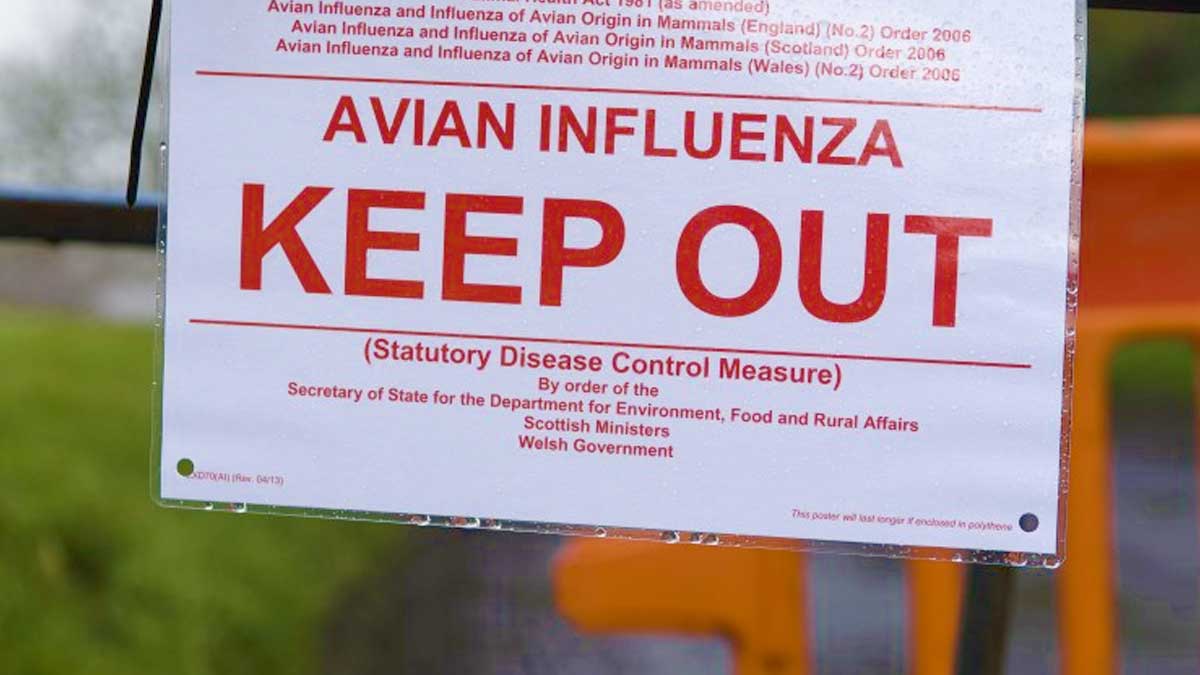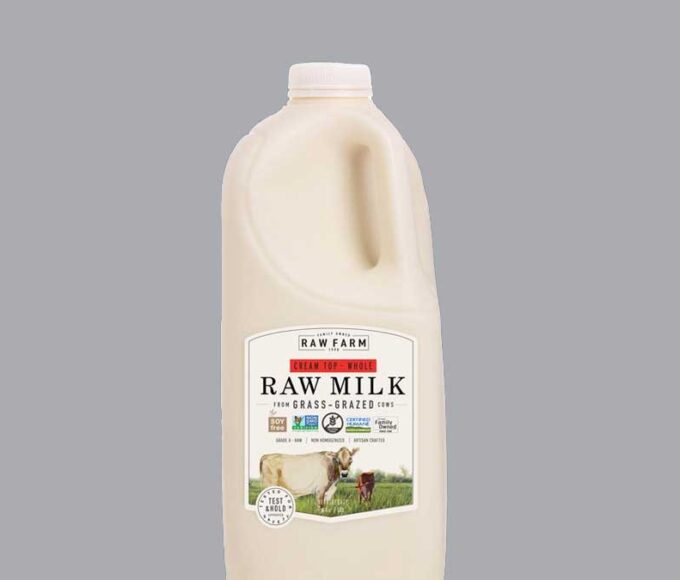- Home
- Billionaires
- Investing Newsletters
- 193CC 1000
- Article Layout 2
- Article Layout 3
- Article Layout 4
- Article Layout 5
- Article Layout 6
- Article Layout 7
- Article Layout 8
- Article Layout 9
- Article Layout 10
- Article Layout 11
- Article Layout 12
- Article Layout 13
- Article Layout 14
- Article Sidebar
- Post Format
- pages
- Archive Layouts
- Post Gallery
- Post Video Background
- Post Review
- Sponsored Post
- Leadership
- Business
- Money
- Small Business
- Innovation
- Shop
Recent Posts
Colorado Monitors 70 for Bird Flu; Meat and Dairy Safe

Recent reports have indicated a global outbreak of H5N1 bird flu that originated in 2020, spreading to cattle in various U.S. states and marine mammals worldwide. Health officials are closely monitoring the situation, with concerns that the virus could mutate and potentially spread to humans, which, although rare, has been known to be deadly.
Seventy individuals in Colorado are currently being monitored for bird flu due to potential exposure. The Colorado Department of Public Health stated that these individuals will be tested for the virus if they exhibit any symptoms. It remains unclear how or when they were potentially exposed.
The Department of Agriculture has tested 30 ground beef products from grocery stores for bird flu, and all results came back negative, reaffirming the safety of the meat supply. The Food and Drug Administration has confirmed that dairy products are safe to consume. Samples of products like infant formula, toddler milk, sour cream, and cottage cheese were tested, and no live traces of the bird flu virus were found. However, some dead remnants were found in some of the food, although none were found in the baby products.
Wenqing Zhang, head of the World Health Organization’s Global Influenza Programme, warned that there is a risk of cows in other countries becoming infected with the bird flu virus, as it is commonly spread through the movement of migratory birds. The Department of Agriculture announced plans to begin testing ground beef samples from grocery stores in states with cow outbreaks. They will also test ground beef cooked at different temperatures and infected with the virus to determine its safety for consumption.
The USDA mentioned the possibility of cow-to-cow transmission occurring due to cows coming into contact with raw milk. They warned against humans and other animals, including pets, consuming unpasteurized milk to prevent potential infection. Jeremy Farrar, chief scientist for the World Health Organization, expressed concern over the potential for bird flu to spread between humans. The virus has evolved and has increasingly been infecting mammals on land and sea, raising the possibility of human transmission.
The Centers for Disease Control and Prevention reported the second U.S. human case of bird flu in a Texas dairy farmer. The farmer became infected after contracting the virus from infected dairy cows but was already recovering.
Bird flu does not transmit easily from person to person, according to the World Health Organization. Most previous cases came from close contact with infected poultry. However, human-to-human spread poses a pandemic potential, and each human case is investigated to rule out this type of infection. While none have been confirmed, there are a few global cases where human-to-human transmission of bird flu was thought to be probable.
Bird flu is highly deadly. Between January 2003 and March 28, 2024, there have been 888 human cases of bird flu infection, with 463 resulting in death. To date, only two people in the U.S. have contracted H5N1 bird flu, both infected after coming into contact with sick animals. The most recent case was a dairy worker in Texas who became ill in March after interacting with sick dairy cows, experiencing only pink eye. The first incident occurred in 2022 when a person in Colorado contracted the disease from infected poultry and fully recovered.
Raw, unpasteurized milk is unsafe to drink, but pasteurized milk is safe. Bird flu has been detected in both types of milk, but pasteurization deactivates the virus. The FDA recommends against making and selling unpasteurized milk, as consuming it may cause bird flu infection. However, pasteurized milk is safe to consume.
The CDC warns against eating raw meat or eggs infected with bird flu due to the possibility of transmission. However, no human has ever been infected from eating properly prepared and cooked meat. The possibility of infected meat entering the food supply is extremely low, and properly handled and cooked meat is safe to eat.
Symptoms of bird flu include fever, cough, headache, chills, shortness of breath, runny nose, sore throat, nausea, vomiting, diarrhea, pink eye, muscle aches, and headache. Laboratory testing is needed for diagnosis, as symptoms alone cannot confirm bird flu.
This year’s egg prices have increased due to decreased production from bird flu outbreaks among poultry. The USDA reports a dozen large, grade A eggs in the U.S. costing around $2.99 in March, up almost a dollar from the fall. However, this price is down from a record $4.82 in January 2023, also due to bird flu outbreaks.
Farmers quickly kill infected chickens to control the spread of the highly contagious and fatal virus. The USDA pays farmers for all birds and eggs that have to be killed due to bird flu as an incentive to curb the disease’s spread.
The FDA has approved bird flu vaccines for humans, but the U.S. stockpile wouldn’t be sufficient for the entire population in case of an outbreak. Plans are in place to mass-produce vaccines if needed, which can take at least six months. No vaccine for the H5N1 variant is circulating, but the USDA began trials on H5N1 animal-specific vaccines in 2023.
Recent Posts
Categories
- 193 Countries Consortium Partner1
- 193cc Digital Assets2
- 5G1
- Aerospace & Defense48
- AI37
- Arts3
- Banking & Insurance11
- Big Data3
- Billionaires1,506
- Boats & Planes1
- Business332
- Careers13
- Cars & Bikes79
- CEO Network1
- CFO Network17
- CHRO Network1
- CIO Network1
- Cloud10
- CMO Network18
- Commercial Real Estate7
- Consultant1
- Consumer Tech194
- CxO1
- Cybersecurity73
- Dining1
- Diversity, Equity & Inclusion4
- Education7
- Energy8
- Enterprise Tech29
- Events11
- Fintech1
- Food & Drink2
- Franchises1
- Freelance1
- Future Of Work2
- Games149
- GIG1
- Healthcare79
- Hollywood & Entertainment203
- Houses1
- India’s 1000 Richest1
- Innovation46
- Investing2
- Investing Newsletters4
- Leadership65
- Lifestyle11
- Manufacturing1
- Markets20
- Media327
- Mobile phone1
- Money13
- Personal Finance2
- Policy569
- Real Estate1
- Research6
- Retail1
- Retirement1
- Small Business1
- SportsMoney42
- Style & Beauty1
- Success Income1
- Taxes2
- Travel10
- Uncategorized15
- Vices1
- Watches & Jewelry2
- world's billionaires1,475
- Worlds Richest Self-Made Women2
Related Articles
Musk Endorses Mounjaro, Backs Affordable Weight-Loss Drugs
Elon Musk, the CEO of Tesla, made headlines on Christmas Day with...
By 193cc Agency CouncilDecember 27, 2024What Healthcare Can Learn from Nvidia’s Success
The tech industry is undergoing a seismic transformation, with two of its...
By 193cc Agency CouncilDecember 16, 2024Salmonella Triggers Recalls of Costco Eggs and Cucumbers
The recent salmonella outbreak has prompted the recall of two major food...
By 193cc Agency CouncilNovember 30, 2024Bird Flu Found in Raw Milk in California, Recall Issued
California health authorities have confirmed the presence of the bird flu virus...
By 193cc Agency CouncilNovember 25, 2024















Leave a comment